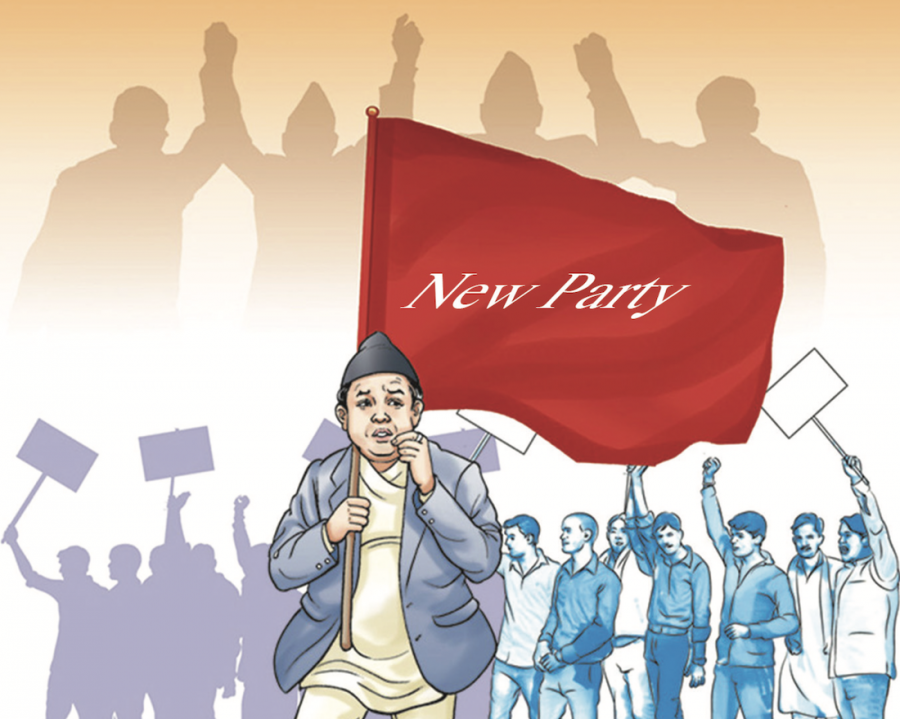Columns
Crude politics of elections
The election campaign has effectively turned into a mudslinging competition.
Achyut Wagle
The Election Commission asserts that it is all prepared to hold the federal and provincial legislative elections slated for November 20. Logistics and operational strategies are essential to enable the electorate to vote for a party or individual of their choice. Beyond that, the very essence of elections in a multi-party system is the availability of parties from among whom the voters choose based on their ideological merit and future plans. The ideology is generally formed under a political metanarrative, while plans and programmes are outlined by parties to woo the voters.
The competition among the contestants is based on their ideological propositions because they reflect how they perceive the socio-economic problems and their plans to correct them. But ideology has disappeared from Nepal's political discourse, thanks to the rise of “pragmatic” politics of electoral alliances sans principles. The ruling alliance includes the self-styled anti-federalist Samyukta Jana Morcha, pro-federalist Janata Samajwadi Party (Baburam Bhattarai faction), democratic socialist Nepali Congress, ultra-left CPN (Maoist Centre) and moderate left CPN (Unified Socialist).
The opposition alliance led by the CPN-UML is made up of another faction of the Janata Samajwadi Party (headed by Upendra Yadav) and the royalist Rastriya Prajatantra Party that sees republicanism, federalism and secularism as absolutely unnecessary. The single binding element in all these alliances is nothing but a lust for power at the cost of ideals, norms or ethics.
Mockery of manifestos
Periodic elections are also about new plans for the country and promises to the voters. This typically comes in the form of election manifesto published by a political party or candidate which contains their aims, policies and plans of action. But with less than a month remaining for the elections, no major political party has come out with an election manifesto.
This shows that the political parties have taken the voters for granted by failing to inform them about their intentions and visions. The very concept of manifesto now appears to have become a big political mockery.
Some large parties like the Nepali Congress and the UML, claim to be drafting them. But the manifesto of a party that is fighting the election under an alliance has no or little political rationale. And drafting a common manifesto for the entire alliance is almost an impossible task because the convergence of ideas is a mirage, and there is no political honesty and accountability. Thus, the very term “manifesto” is a joke .
A total of 84 political parties out of the 116 registered with the Election Commission are contesting this parliamentary election. This indeed is an extraordinary scenario in a country with a population of only about 30 million. The mushrooming of political outfits to such an extent was made possible by the rise of “politics without principles”. About half of these parties claim to be communists without any ideological basis to distinguish them from one another.
Even the larger outfits like the Maoist Centre and the UML barely have a distinct ideological identity. Since all political players have accepted multi-party parliamentary democracy, the retention of the word “communist” in their names is a farce.
These aberrations have encouraged people to form a new party without any defined objectives or possibility of electoral success. The presence of such a large number of parties that mostly surface during the elections has added to the political mess. If the public has become increasingly disenchanted with the parties that have traditionally remained at the forefront of national politics, the newer ones have not been able to enthuse the voters either. The large number of parties in the fray seems to indicate that politics has become a profession which anyone can purse without any qualification.
Serious ramifications
While the absence of ideological differences has enabled often warring parties to form coalitions, maintaining a separate political outfit solely for the purpose of power-bargaining has a number of serious ramifications. This confusing concoction deprives voters of the opportunity to choose the party that matches their preferences. For example, if one wants to vote for a party that defends federalism, one will not know whom to choose because of the medley of ideologies represented in an alliance.
Such crudity in politics focused only on winning elections does not help to consolidate the political system we have adopted. A republican federal democracy can thrive only if a multitude of political ideas (not the number of parties without ideas) are allowed to come to the forefront of the national political debate. The practice of creating alliances has effectively made that impossible. The temerity of the parties going to the voters without an outline of their plans and programmes shows how little say the common people have over national affairs. There is a dictatorial motive among the parties that expect people to vote for them to let them rule, not for their plans of action. The current election campaign has effectively turned into a mudslinging competition instead of an informed, civilised debate.




 8.79°C Kathmandu
8.79°C Kathmandu















